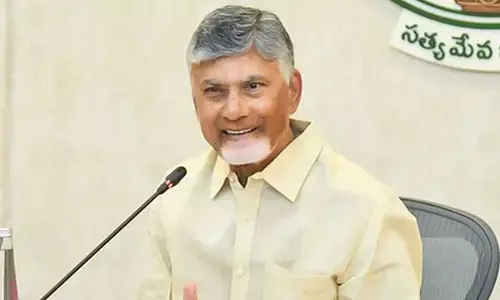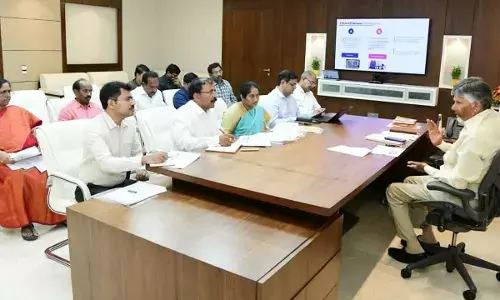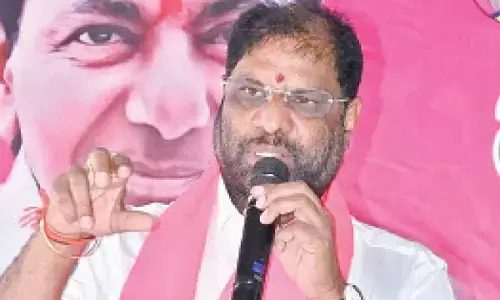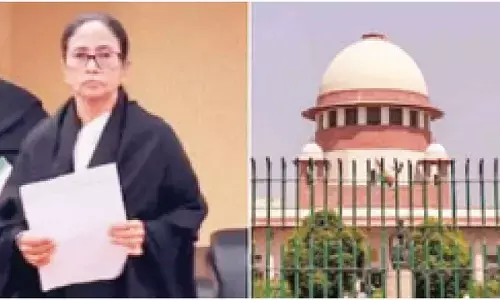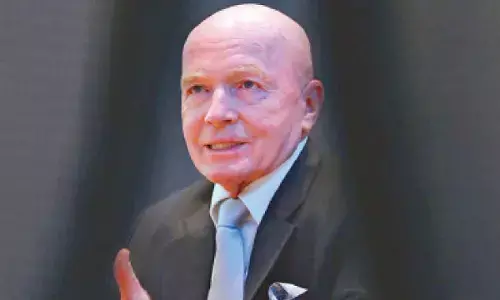Hyderabad: Study for better community participation
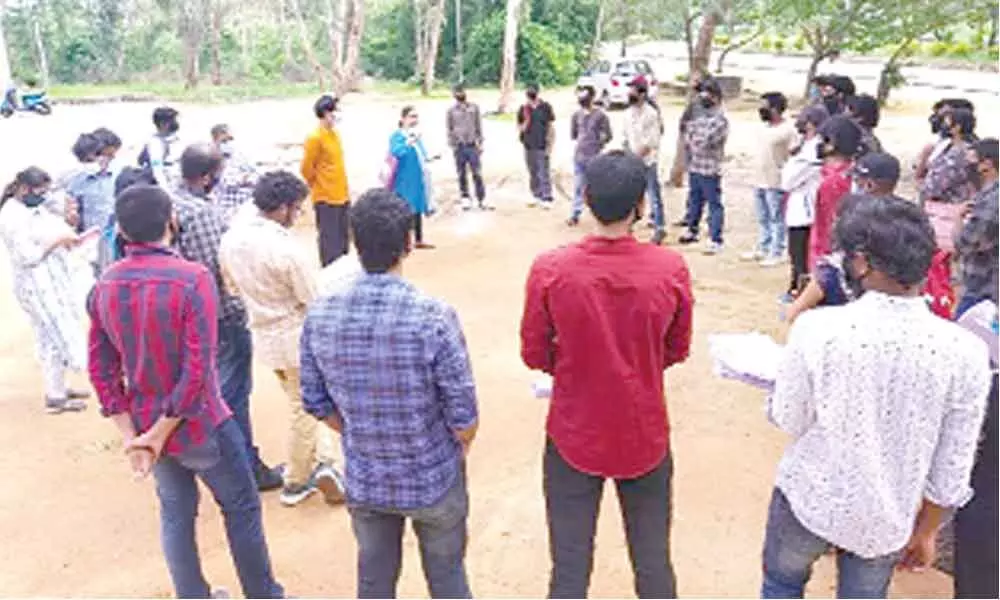 UoH stresses knowledge dissemination thru sensitisation and awareness drive
UoH stresses knowledge dissemination thru sensitisation and awareness drive- UoH stresses knowledge dissemination thru sensitisation and awareness drive
- The studied communities and their respondents had good awareness with respect to the term ‘Corona’ and its consequences but the attitude towards its serious consequences has not influenced them yet
- Households in the lower income group, mainly from daily wage earners, migrant workers and contractual employees, are the worst sufferers in all aspects during COVID-19
Hyderabad: In a latest study conducted by the University of Hyderabad (UoH) on "Impact of COVID; 1918 Flu Pandemic (H1N1 Virus) in India" revealed several gaps in knowledge related to the health aspects of COVID-19 within the studied communities.
The findings of the study stated that democratisation of knowledge was found wanting. This could be addressed by flow of information from professionals to the public through sensitisation and awareness programmes using engaging communication and locally relevant methods with community participation.
Regular door-to-door survey and adequate testing where required with directions for referral was needed.
The survey was done in five villages namely Tellapur, Osman Nagar, Kolluru, Velmula and Vattinagulapally of Ranga Reddy and Sangareddy District and 342 households interviewed by 36 field investigators between June12 to June 30.
Improvement in living conditions entails ensuring proper housing with proper ventilation, safe drinking water, sanitary reforms, food security, conducive working conditions and economic security.
The study pitched for a comprehensive policy to boost rural economy through strategies like buying directly from the farmers, food processing on perishable food items and decentralised cold storage facilities in order to reactivate/boost small scale industries. These have both health and socio-economic dimensions and are very vital for overall life, livelihood and living.
Direct Benefit Transfer schemes are playing a pivotal role as a coping strategy during the COVID- 19 crisis. The local self-government especially the panchayat/municipality offices must escalate and engage communities more with awareness programmes.
Communication strategies using appropriate and local methods like folk songs and street plays must be used to reach out people effectively. It would be an ideal medium considering 35 to 40 percent illiteracy rate in the studied rural communities.
The PM Jan Arogya Yojana (PMJAY) and the state governments Arogyasri with portability modalities due to lack of MoU between the state and centre must be re-purposed as an effective policy that would help save lives and economy even during the present COVID-19situations.
Notable suggestions included reinforcing the agriculture sector by extending the input subsidy and best price for their products and daily wage workers should be engaged in agriculture and allied activities in rural villages itself.
The modality of how this can be done needs to be discussed with the local leadership of the communities.
"Behavioral" vaccine like personal hygiene, safe distancing and wearing a face cover during all times till a medical vaccine or effective prevention or treatment with medicines becomes available has been the learn pandemic for India.
This indicates that the self-employment sector should be strengthened and motivated both in the short run and long run for overall development of the rural economy and for the crisis management.
Policy mechanisms must be made, both in cash and kinds, to help those worst suffering households. Availability of credit without collaterals may be an option.
The study also reviewed how India handled the impact of 1918 Pandemic (H1N1 virus) and the measures that India took to overcome the economic challenges in the post pandemic stage in the last century.
The core team of the university that was constituted included Prof Phanindra Goyari and Dr Krishna Reddy Chittedi (School of Economics), Prof B R Shamanna (School of Medical Sciences), Dr T Apparao (Dept of Anthropology), Dr Asima Jena (Dept of Sociology) and Dr V Srinivasa Rao (Centre for Regional studies) and Ashish Jacob Thomas (PRO) to execute the study.









